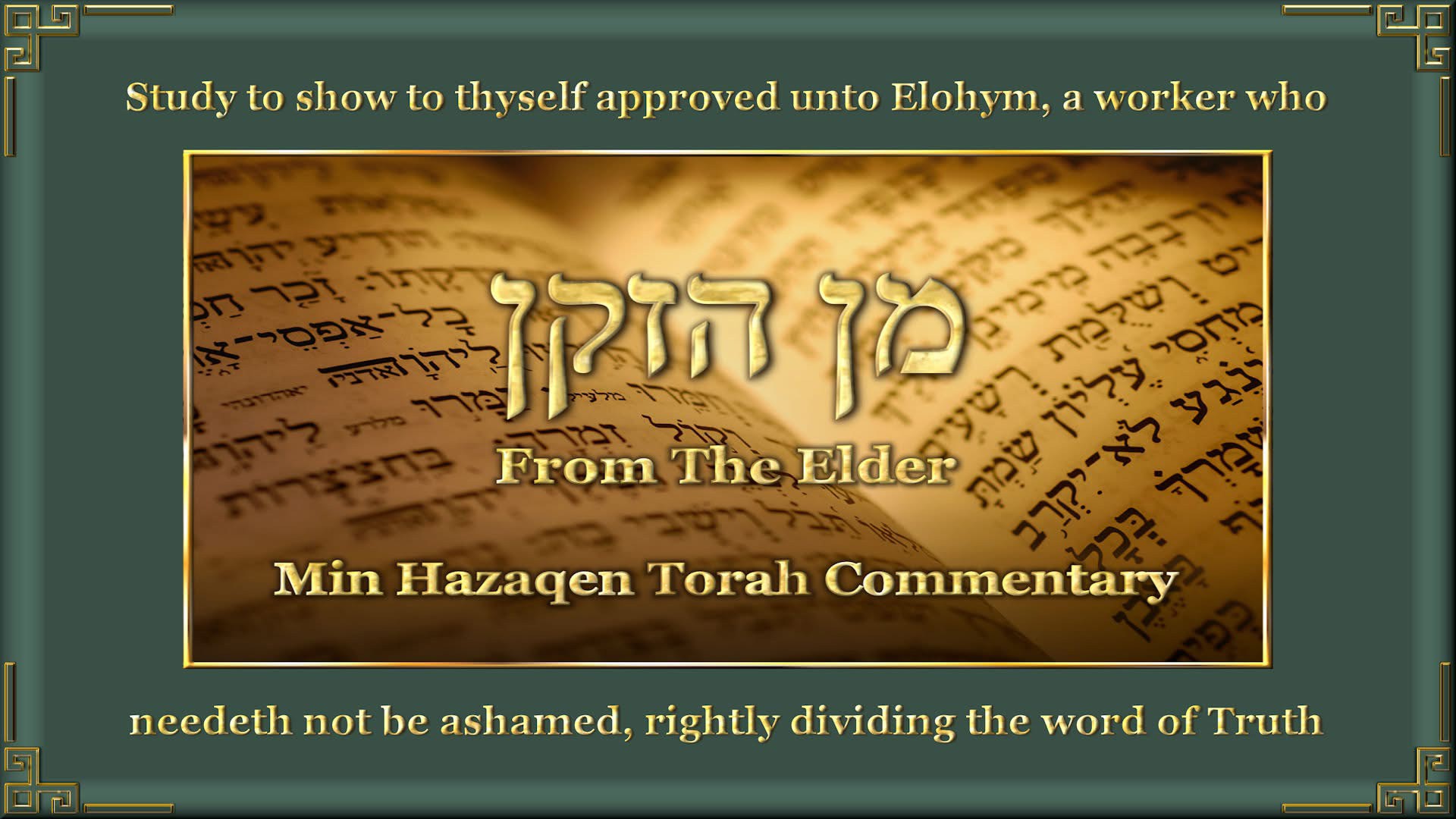Watch
Events
Articles
Market
More
Shalom Chaverym;
This week’s parasha is: Vay’chy – ויחי – “And he lived”
Torah reading: B’reishyth 47:28-50:26
Haftarah reading: Melakym Aleph 2:1-12
Ketuvim hatamidym reading: Ma’asei 7:11-17
Shalom aleykhem, achym, b’shem YHWH Avinu ~ Peace to you, my brothers, in the name of YHWH our Father.
Vayeiv’kh Yoseph b’dab’ram eilav ~ “And Yoseph wept with their words to him.”
After his death, the sons of Yisrael came to Yoseph, their brother, and they were afraid. They thought that, with their father gone, Yoseph would now turn on them to do them harm in revenge for the way they had treated him. This fear that Yoseph saw in his brothers brought him to tears. Because they themselves hadn’t changed, they still couldn’t understand their brother’s love and righteousness. Blinded by worldly thinking and sin, they couldn’t see. They just didn’t get it.
In another place it says, “Yehoshua wept,” – and no one understood why. They supposed that he wept over the death of his friend. But, like Yoseph, he wept because his brethren still didn’t understand. Because of the hardness of their hearts, they were blinded and couldn’t see that this righteous man in their midst was not their enemy. They hadn’t the vision to perceive that they had nothing to fear from him, and that through him, YHWH would bring a great deliverance. The message is the same. His brethren just didn’t get it. The question to be asked in light of these examples is, do YOU get it?
Now, as with Yoseph, the lost ones who are called Ephraim are finally beginning to be rejoined to their brethren. And just as with him, his brothers in Yehudah do not yet recognize them, changed as they are by having lived among the nations. There is something that Ephraim still lacks in order to affect this. The recognition will not come, nor their rejoining be complete until Ephraim reclaims that same righteousness that lifted Yoseph up above his brothers.
It is prophesied that the temporary stumbling of the Jews over the Messiahship of Yehoshua has been brought about in order to provide deliverance to the nations, and that unbelieving Jews will be provoked to jealousy through those nations who follow him. Since prophecy cannot be broken, it can be inferred that the chosen remnant from among the nations who truly belong to Messiah can be identified as those who actually provoke the Jews to jealousy by their righteous behavior and an intimate relationship with YHWH and His Messiah. I have news for you: The Jews are not and never will be jealous over nations or religions that embrace idolatry, and who are ignorant of and reject the Torah and commandments of YHWH. Neither can any nation or religion that does these things ever be considered righteous. Until Ephraim begins to become righteous above his brethren again, the prophesied recognition, reconciliation and rejoining of all the sons of Yisrael cannot occur. Anyone who doesn’t come to understand this simple truth doesn’t get it either.
This all sounds pretty dire. However, YHWH has a plan to save those who love Him, brethren, and it will come to pass. The book of B’reishyth begins with the creation of Adam who falls into sin and ends with the death of Yoseph who is lifted up in righteousness. But, as its name implies, it is not truly the end; it is only the beginning. If B’reishyth is the story of the week of lives of the patriarchs, then Sh’moth is the story of the eighth day which comes after that and brings a great deliverance to their sons and daughters.
May you learn from it and be found righteous. May you provoke jealousy among your ancient kinsman and be counted among the remnant saved on that day.
B’Shalom, Ovadyah Ben Yisrael



